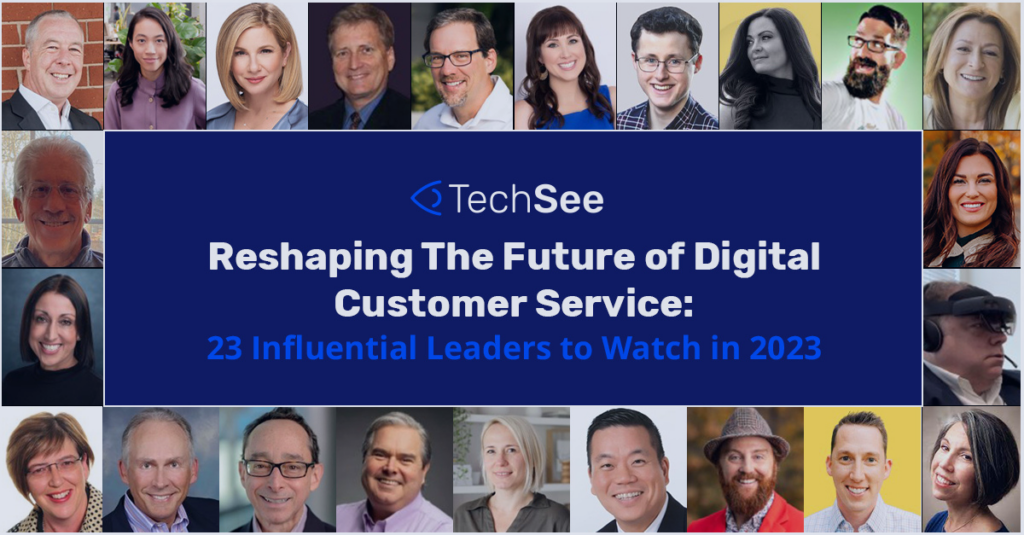Contents
Customer experience, or CX, is a fundamental component that determines the success of a business. Companies thriving today recognize that finding ways to improve customer experience is not just an option but a strategic necessity for 2025, with all the opportunities and challenges that it entails, and beyond.
With so many aspects of CX to consider, we think it’s important to break down our suggested improvements into four key concepts. By focusing on efficient service interactions, nurturing a customer-centric culture, and leveraging technology, we’ll outline how enterprises not only create a seamless and delightful customer experience but also drive business growth.
Let’s dive into the four key ways to improve customer experience, with 19 specific suggestions across the three:
Key Concept 1: Enhance Service Interaction
Providing personalized and efficient service interactions is pivotal in enhancing customer satisfaction and building enduring relationships with clients. When customers interact with a company, their expectations revolve around receiving prompt, attentive, and tailored communication. Fulfilling these expectations is crucial for businesses seeking to thrive in the current competitive landscape.
1. Tailored Communications
Personalized service interactions involve understanding and addressing the unique needs and preferences of each customer. By actively listening to customers and gathering relevant information, enterprises can tailor their communication and service offerings accordingly. When customers feel heard and valued, they are more likely to develop trust and loyalty toward the brand.
2. Speedy Service
Customers expect their concerns to be addressed promptly and efficiently. Whether it’s through phone calls, emails, or live chat, businesses must ensure that customer inquiries are handled in a timely manner. In fact, many service leaders have found that customers on digital channels such as chat have far higher expectations for timely resolution than customers over traditional channels like phone calls. Technology can significantly improve efficiency by providing customers with immediate access to the information, resources, and resolutions they expect.
Key Concept 2: Build a Customer-Centric Culture
Adopting a company-wide customer-centric mindset is a fundamental strategy for achieving sustainable success. Shifting towards this mindset requires a comprehensive approach involving various aspects of the organization. The payoff is worth the investment, as this is one of the ways to improve customer experience which shows almost immediate dividends.
3. Staff Training
-
- Implement comprehensive training programs to educate employees across all levels about customer-centricity. Remember to tailor your training to each employee’s unique role.
- Focus on instilling empathy, active listening, and problem-solving skills.
- Train employees to anticipate and meet customer needs proactively.
4. Effective Communication
-
- Establish clear channels of communication between customer-facing teams and other departments.
- Foster a culture of open dialogue where customer feedback is welcomed and shared.
- Encourage employees to escalate customer concerns promptly.
5. Leadership Commitment
-
-
- Set clear expectations for customer-focused behavior at the leadership level.
- Regularly communicate the importance of customer satisfaction to all employees.
- Lead by example, demonstrating a commitment to delivering exceptional customer experiences.
-
6. Customer-Focused Values
-
- Define and articulate core values that emphasize the importance of the customer.
- Incorporate these values into recruitment, onboarding, and performance evaluation processes.
- Recognize and celebrate employees who exemplify customer-centric behaviors.
7. Continuous Improvement
-
- Foster a culture of continuous improvement, where customer feedback is used to identify areas for improvement.
- Implement processes for regularly reviewing and updating customer-centric initiatives.
Key Concept 3: Leverage Technology to Improve CX
While fostering a customer-centric culture and enhancing service interactions are essential, technology serves as the critical enabler to achieve these goals at scale. Cutting-edge solutions not only streamline processes but also empower companies to deliver personalized, efficient, and proactive customer experiences.
Technology’s Role in Enhancing Service Interactions
8. Personalization at Scale
AI-driven solutions can analyze customer data to understand individual preferences and behaviors. This enables businesses to tailor interactions, recommendations, and offers, making each customer feel valued and understood.
9. Efficiency and Speed
Basic automation tools can handle routine tasks, whereas robust AI automation can automate the more costly, complex service tasks. This frees up human agents to focus on providing empathetic support when needed. Additionally, AI-powered agents can offer instant responses to common queries, and robust AI agents can provide no-wait Tier 2-level service automation. This reduces wait times and improves overall efficiency.
10. Proactive Support
Predictive analytics can anticipate customer needs and potential issues, allowing business leaders to proactively offer solutions and prevent problems before they escalate. This level of proactiveness demonstrates a commitment to customer success and builds stronger relationships, which is crucial when considering ways to improve customer experience.
Real-World Results
An electronics manufacturer has seen wildly successful results from using TechSee to enhance their CX operations:
- 30% increase in first-call resolution (FCR) rates.
- 40% reduction in average handle time (AHT).
- 25% reduction in product return rates.
- 18% improvement in customer satisfaction (CSAT).
Technology’s Role in Reinforcing Customer-Centric Culture
11. Empowering Employees
Equipping employees with the right tools and technologies enables them to deliver exceptional service. AI-powered visual guidance or LLM-optimized knowledge bases, for instance, provide agents with instant access to relevant information, empowering them to resolve issues quickly and accurately. These technologies are often delivered by Agent Assist features, also known as Agent CoPilots.
12. Data-Driven Insights
Technology can gather and analyze customer feedback, providing valuable insights into customer sentiment and preferences. These insights can guide decision-making, product development, and service improvements, ensuring that the business remains aligned with customer needs.
13. Fostering Collaboration
Collaboration tools and platforms enable seamless communication and knowledge sharing across departments. This fosters a unified approach to customer service, ensuring that everyone is working towards the same goal of delivering exceptional experiences.
Real-World Results
Businesses that cultivate a customer-centric culture often witness increased market presence and customer loyalty. Telecommunications leaders that implemented TechSee have successfully improved customer experience and dramatically cut costs across service operations:
- 51% improvement in customer satisfaction (CSAT).
- 47% improvement in Net Promoter Score (NPS).
- 45% reduction in technician dispatches.
- 25% improvement in call deflection rates.
Key Concept 4: Holistic Implementation for Maximum Impact
The most effective CX strategies are holistic, combining service interaction, culture, and technology. Leading departments achieve a force-multiplier effect by choosing solutions that address these aspects comprehensively.
14. Force-Multiplier Effect
Integrating diverse facets such as proactive and responsive service, cutting-edge technology, and a thriving corporate culture allows businesses to significantly enhance their positive impact on CX. Selecting providers capable of addressing all these areas is paramount for success.
When customers have a positive experience with a company, they are more likely to become repeat customers and advocates for the brand. Positive CX leads to increased customer loyalty, higher satisfaction rates, and improved brand reputation. At a time when customer expectations are constantly evolving, companies can create a compelling customer experience that sets them apart from the competition and ensures long-term growth and profitability by prioritizing CX.
15. Multimodal, Omnichannel Support
In this digital age, email and live chat have become standard support channels, but many customers still prefer to speak to a real person when they need assistance. True leaders in customer support go a step further and offer multimodal support, bringing visual clarity to text and voice interactions or bridging human touchpoints with AI-powered solutions to meet customers’ growing expectations across every touchpoint.
16. Visual Guidance
Visual communications are a powerful tool for support agents. Visuals help to clarify complex issues, especially related to hardware where customers may lack the technical knowledge to accurately and easily communicate their status or issue. Similarly, visuals allow remote agents to provide clear step-by-step instructions. For example, many of today’s leading support agents use TechSee Live to guide customers through troubleshooting flows, making these complex calls simpler, faster and easier for all involved.
17. Seamless Omnichannel Transitions
Of course, it’s important to provide customers with a consistent and seamless support experience across all channels. This means that customers should be able to easily progress from email to live chat to phone calls or even to full visual support without having to repeat their information or restart the process.
Charting the Path to Future Success
Businesses that adopt a full-picture approach when thinking of ways to improve customer experience set themselves up for long-term success. By continually innovating and adapting to meet evolving customer demands, they not only enhance satisfaction but also secure their competitive edge. As companies look to the future, embracing a complete, thoughtful CX strategy remains crucial in an ever-changing market.
Ready to learn more about how AI will improve customer experience in 2025? Keep your eyes out for our complimentary report: The 2025 Strategic Guide to Agentic and Generative AI – coming soon! This original report is packed with insights on the latest CX and AI adoption trends, and how today’s innovators are transforming the game, helping businesses give their customers experiences that fuel their growth.






